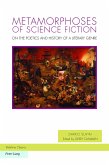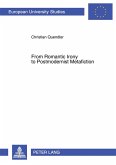This book is a comparative study of the early works of Vladimir Nabokov and the fictions of Virginia Woolf. The aim of this study was to establish the applications and implications of involution: how it is used to subtly reformat a text and how it changes the meaning of a work, trapping and reinventing the reader. The work analyses the transgressive use of imagery, symbols, patterns and other textual devices. Studying these "dangerous games" with authors and readers, the book observes involution at work in the very structure of the fictional world, shaping its time, space and matter.
«Ksiezopolska presents a close analysis of some of the narrative works of Nabokov and Woolf engagingly, frequently by means of a minute deconstruction of the way in which certain images and symbols are organised. Without doubt, the book opens up a new avenue of possibilities in the study of these authors, at the same time as it points towards a reconsideration of Woolf beyond the frequently too narrow literary categories.» (Isabel M. Andrés, Virginia Woolf Bulletin 43, 2013)








